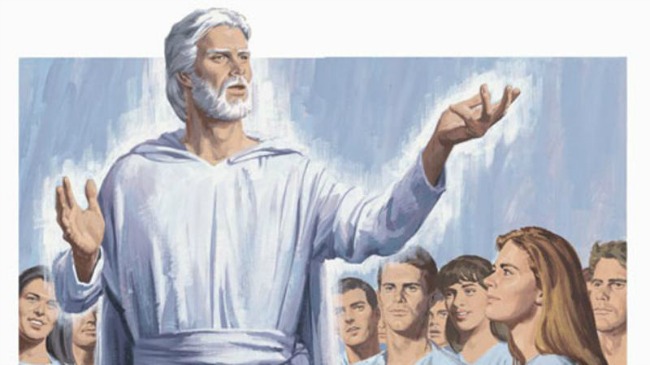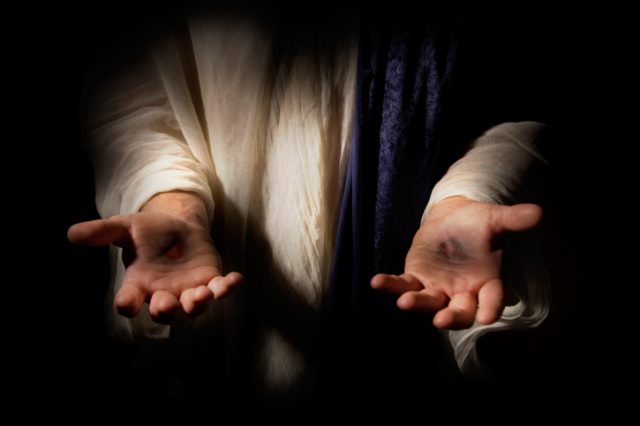Question
Gramps,
Among my family and friends, I always strive to be unique and different. Yet often experience would show me I’m not the only special one. Unity is one thing, but how does our resemblance to God give Him glory? When likeness cleaves unto likeness how do you discern individuality?
Bovey
Answer
Dear Bovey,
Thanks for your question. Not knowing you or being able to discuss this with you further, I have to make some assumptions and speak in generalities. I’m not making assumptions about you, only about the topic of uniqueness versus unity with God.
First, I’d like to discuss the idea of uniqueness or individuality. So many worry either that they’ll lose their individuality in an organization like The Church of Jesus Christ of Latter-day Saints, or that it won’t be appreciated, or that their individuality will keep them from progressing, from becoming one with other members, or with the Lord. I believe those worries can be washed away by looking closely at revealed truths.
In youth, we often feel that we’re different from everyone else (and if not, we want to be perceived that way). In our efforts to distinguish ourselves, we tend not to realize that everyone else our age is trying for the same thing, and that everyone, regardless of age, is already unique, even if we do not perceive or appreciate their uniqueness. But there’s evidence all around us that God does indeed appreciate individuals and uniqueness. Brigham Young once said:
Endless variety is stamped upon the works of God’s hands. There are no two productions of nature, whether animal, vegetable or mineral, that are exactly alike, and all are crowned with a degree of polish and perfection that cannot be obtained by ignorant man in his most exquisite mechanical productions. Man’s machinery makes things alike; God’s machinery gives to things which appear alike a pleasing difference.
— Journal of Discourses, Vol.9, Pg.369 – Pg.370, Brigham Young, August 31, 1862
Neal A. Maxwell, speaking of our potential to bless the lives of those around us, also gives a hint at God’s attention to each of us as individuals:
The same God that placed that star in a precise orbit millennia before it appeared over Bethlehem in celebration of the birth of the Babe has given at least equal attention to placement of each of us in precise human orbits so that we may, if we will, illuminate the landscape of our individual lives, so that our light may not only lead others but warm them as well.
— Neal A. Maxwell, That My Family Should Partake, Pg.86
If we turn to the scriptures, we see more evidence that the Lord is not interested in us being identical copies of one another. In Doctrine and Covenants 77:2, we learn that our physical appearance is similar to our spiritual appearance:
…the spirit of man in the likeness of his person, as also the spirit of the beast, and every other creature which God has created.
Had God wanted us all to be so similar that one of us could not be distinguished from another, I suspect he could simply have made us look identical. But clearly, God doesn’t want identical. Ephesians 4:11-14 starts to give us a hint at the difference between being one, and being identical:
11 And he gave some, apostles; and some, prophets; and some, evangelists; and some, pastors and teachers;
12 For the perfecting of the saints, for the work of the ministry, for the edifying of the body of Christ:
13 Till we all come in the unity of the faith, and of the knowledge of the Son of God, unto a perfect man, unto the measure of the stature of the fulness of Christ:
Here we see different callings working together for a single purpose. And in 1 Corinthians 12, Paul speaks of the diverse gifts and callings of those in the church, and how all of these are needed to bless the whole. Key to our topic, are these verses:
18 But now hath God set the members every one of them in the body, as it hath pleased him.
19 And if they were all one member, where were the body?
20 But now are they many members, yet but one body.
Despite being many, and different, together, they make one. This same concept is confirmed in our own dispensation in Doctrine and Covenants 46:
11 For all have not every gift given unto them; for there are many gifts, and to every man is given a gift by the Spirit of God.
12 To some is given one, and to some is given another, that all may be profited thereby.
Again, scripture describes many gifts used to benefit the whole. Which brings us to your questions about our resemblance to God and how, if like things “cleave” together, they can be distinguished from each other. To answer this, let’s add to the above an understanding of what God means when he commands us to be united.
In 2 Nephi 1:21, Lehi commands Laman and Lemuel, “…be determined in one mind and in one heart, united in all things…”. He’s not telling them to mimic each other or do everything in exactly the same way, but rather to have the same goals (mind) and desires (heart).
Perhaps Moroni 7:48 has caused you to wonder about this topic:
48 Wherefore, my beloved brethren, pray unto the Father with all the energy of heart, that ye may be filled with this love, which he hath bestowed upon all who are true followers of his Son, Jesus Christ; that ye may become the sons of God; that when he shall appear we shall be like him, for we shall see him as he is; that we may have this hope; that we may be purified even as he is pure. Amen.
I don’t believe that when Moroni says we shall be like Christ that he means “indistinguishable from”. Doctrine and Covenants 130:1 renders this same idea in slightly different words:
1 When the Savior shall appear we shall see him as he is. We shall see that he is a man like ourselves.
Both of these verses mean to me that we will recognize our Savior as being an exalted man, our elder brother, the one whom we wish not to mimic, but to emulate. Even in Ezekiel 37:17, when the Lord speaks of combining the scriptures into one, it’s clear that this doesn’t involve any given book losing its uniqueness or individuality, but rather, the collection filling a single purpose.
And so we are left with the question of what it really means in John 17:21-22, when the Savior says:
21 That they all may be one; as thou, Father, art in me, and I in thee, that they also may be one in us: that the world may believe that thou hast sent me.
22 And the glory which thou gavest me I have given them; that they may be one, even as we are one:
The best explanation of these verses that I have seen comes from October 2010 General Conference, where Elder Christofferson, in his talk “Reflections on a Consecrated Life” quoted:
Elder B. H. Roberts once expressed the process in these words: “The man who so walks in the light and wisdom and power of God, will at the last, by the very force of association, make the light and wisdom and power of God his own—weaving those bright rays into a chain divine, linking himself forever to God and God to him. This [is] the sum of Messiah’s mystic words, ‘Thou, Father, in me, and I in thee’—beyond this human greatness cannot achieve.”
Finally, let me leave you with two quotes from Hugh Nibley:
Does sameness depress you? The heavenly hosts, so we are told, all wear the same simple white garment–how monotonous! We all dress alike in the temple. Are you depressed to be there? No, the difference is in the person himself. It shines through as the individual spirit. The Father and the Son glowed exactly alike. Why doesn’t one wear black and the other wear green or something like that? No. It is the outward sameness that allows inward sameness, the spirit, to shine through. … The difference is that in heaven it is the individual spirit that shines through.
— Hugh Nibley, Approaching Zion, Chapter 15
In God’s realms, it isn’t what’s on the outside that matters, it’s what’s on the inside. Part of our goal in mortality is to learn to look past the outer man and see what’s inside. When that happens, we begin to appreciate the unique contributions and value of each individual (emphasis mine):
Plotinus taught that each star existed for the sake of the whole, to which it contributed its individuality. Each has its particular part to play; by being uniquely itself it can make a contribution of maximum value.
— Hugh Nibley, Old Testament and Related Studies, Chapter 6
I hope, Bovey, that you will always know that God loves each of us as individuals, and values our unique contributions. I pray that each of us can learn to do the same.
Gramps







